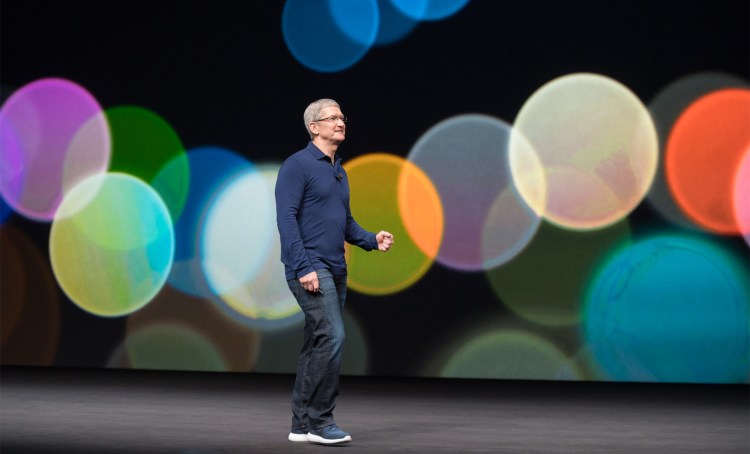Apple is flying higher than ever on the eve of its latest iPhone event, which remains the biggest tech circus in town. Yet while we think we know just about everything that will be announced, it’s the few details we don’t know that pose the greatest risk to Apple over the next year.
First, let’s start by recognizing the incredible year Apple is having. The company shrugged off a down year in FY 2016, its first in more than a decade, and has returned to growth this year. It did so thanks to the iPhone 7, its core product, proving it could continue to evolve the device enough to drive consumer upgrade interest.
But the company has also dramatically accelerated growth in its Services category. For a company that has shipped 1.2 billion iPhones in 10 years, and has enlarged the ecosystem of gadgets that surround it, this is a strong sign that it’s beginning to leverage that vaunted loyalty its customers have in a much more profound way.
Heading into the iPhone event, investors have seized on these strong indicators to drive Apple’s stock to new record highs day after day. That stock mirrors the grandiose expectations heading into the annual unveiling of new gadgets. It’s an event always weighted with such expectations, but even more so because it’s the 10th anniversary of the iPhone and it’s been three years since there was a truly radical change to the iPhone.
June 5th: The AI Audit in NYC
Join us next week in NYC to engage with top executive leaders, delving into strategies for auditing AI models to ensure fairness, optimal performance, and ethical compliance across diverse organizations. Secure your attendance for this exclusive invite-only event.
And this is the first concern: Have those expectations far outrun the reality of what Apple has in store?
The iPhone X, for instance, sounds like a remarkable device. But in pressing for advanced features, like an OLED screen to match rival Samsung, Apple seems to have created some problems for itself. The Wall Street Journal has reported there have been manufacturing issues. These seem to have forced Apple to make a trade-off, dropping Touch ID in favor of using facial recognition for unlocking the iPhone. It’s something that led Apple-watcher John Gruber to wonder if Apple is “rushing” the phone to market.
“It all comes down to how good the facial recognition is,” Gruber wrote. “If it’s as fast, reliable, trustworthy, and convenient as Touch ID, then omitting Touch ID is a legitimate design choice. Forward progress on biometrics. If it’s worse than Touch ID in any meaningful way, it’s an inexcusable mistake.”
Beyond that, the iPhone X is damn expensive, reportedly at $1,000 or more. And those production issues could limit the company to making only 10,000 a day, according a note from KGI Securities analyst Ming-Chi Kuo obtained by MacRumors. Asking someone to pay a king’s ransom and then wait weeks or months to get their goodies is never a good recipe for pleasing customers. It also could crimp the company’s earnings in the critical holiday period.
Certainly the iPhone 8 and iPhone 8 Plus will have some nifty new features. But so far, reports don’t indicate any kind of dramatic new features that would be expected to set off an upgrade frenzy. We’ll see.
Of course, while reporters still refer to the annual gathering as the “iPhone event” for shorthand, much more will be discussed tomorrow. There’s a cellular Apple Watch coming that could be a game changer for smartwatches. There’s new AirPods. And Apple will probably unveil a 4K version of Apple TV, hoping to regain some lost ground in the home streaming device market. Plus, there should be some update on availability of its voice-activated HomePod speakers assistant announced this summer at its Worldwide Developers Conference.
Oh, and the company is in the middle of moving many of its employees into its new Apple Park headquarters. Which can be a headache and huge distraction for the rank and file.
All of this is A LOT to juggle, even for the world’s most valuable company. There was a time a few years back where Apple’s employees were so constrained, the company had to decide whether to work on iOS or macOS because it couldn’t do both at the same time. Clearly it can now, and then some. But it seems to be pushing the envelope on its own ability to massively multitask. The question is whether it can do all of these things at the same time, and do them up to Apple’s notoriously high standards.
This was a company that once boasted about wanting to do just a few things well. On top of all this, it’s no doubt working on all sorts of goodies in its labs.
Certainly investors believe the company is practically unstoppable at this point. But as always, the drama surrounding the event remains high. The risks as Apple evolves continue to expand.
And yet I’m pretty sure that Apple, which has thrived on proving the doubters wrong, wouldn’t want it any other way.

